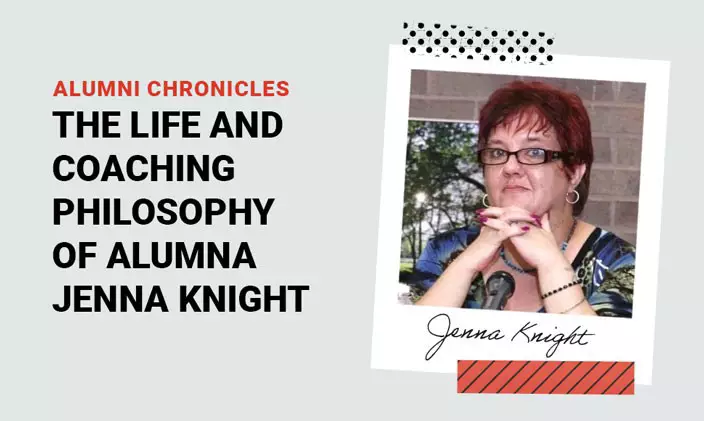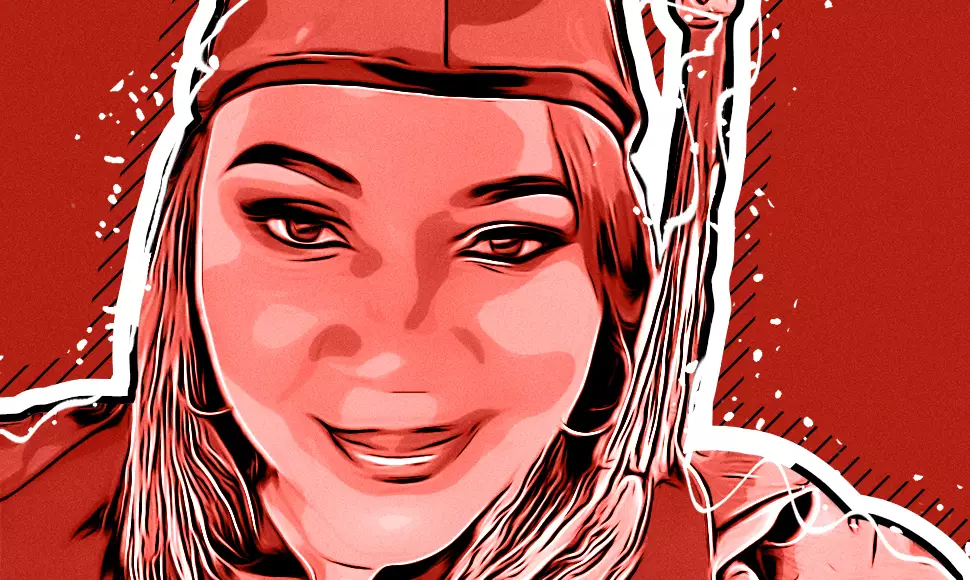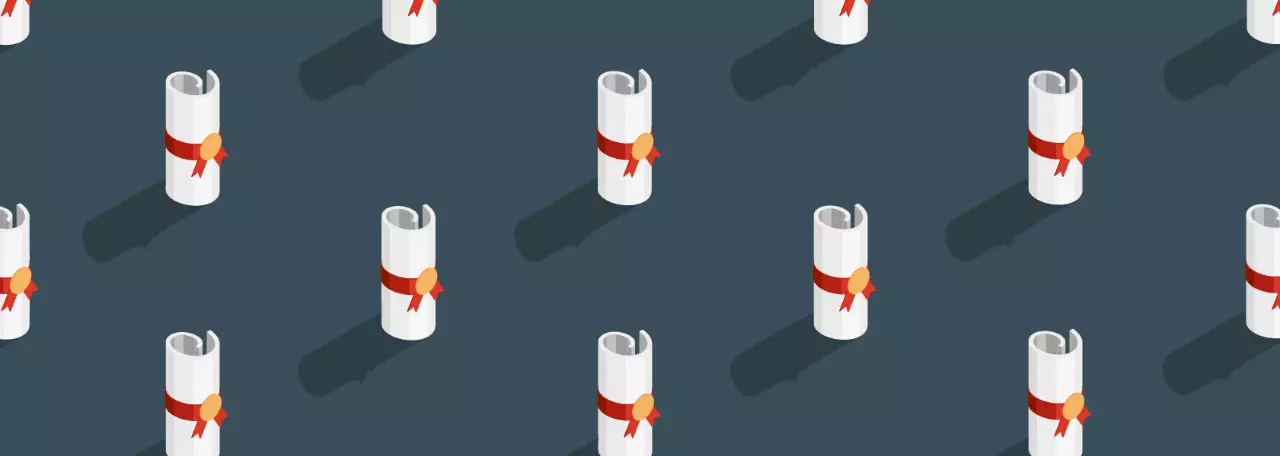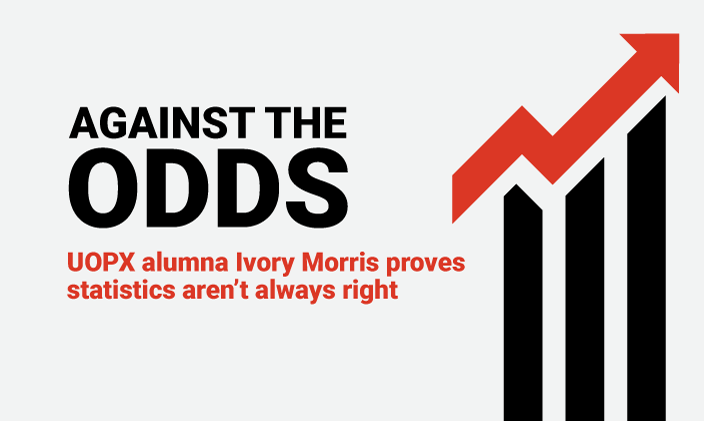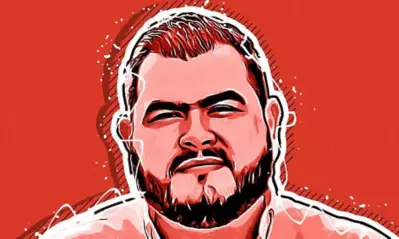Discover more stories in our Alumni Chronicles Magazine!
'You are not your symptoms': The life and coaching philosophy of alumna Jenna Knight
By Michael Feder
Jenna Knight’s interest in the human mind started at a young age. Her mother’s work in human services, as well as Knight’s own curiosity, opened her eyes to both the compassion and knowledge necessary to work in the psychological field.
Knight possesses both qualities in spades. Her warmth and wit are palpable as she explains how her struggles with attention-deficit/hyperactivity disorder (ADHD), depression and anxiety inspired her to help others with similar struggles. Indeed, her current role as a certified ADHD coach specializing in women with attention-deficit disorders, is the byproduct of a life of learning and passion.
Where it all started
Looking back, Knight sees how pivotal her mother’s work at a local school was. Her mom worked with children who had developmental challenges. Knight smiles while she recalls the story of one girl her mother worked with who really wanted to be Knight’s friend.
Knight was excited to make a new friend and didn’t see how a mental disability would get in the way of that. But during their first meeting, the young girl spit in Knight’s face. Some people might disengage at that point, but not Knight. She didn’t hold it against her new friend, and it would be this magnanimity coupled with genuine compassion that would form the foundation of Knight’s career in psychology.
Getting an education
As Knight grew up, her passion for psychology grew too. She completed a bachelor’s degree at another university and then worked for seven years at an agency in Massachusetts that was focused on learning disabilities (LD) and ADHD. She became chair for a LD/ADHD task force and served on the Massachusetts State Rehabilitation Council as an ex officio member.
During this time, Knight began to build her own business. She wanted to provide life coaching services to people with ADHD, particularly women. Knight’s own diagnosis of ADHD made the work very personal to her. She was also interested in the ways ADHD interacts with depression and anxiety. “I wanted to understand the comorbidities,” she says. She pointed out that depression and anxiety can compound detrimentally with ADHD.
In 2014, Knight got her certification in ADHD coaching. In addition to working with women, she focused on helping parents with children affected by the disorder.
Knight’s curiosity about matters of the human mind drove her to pursue her master’s in psychology. Her husband cheered her on, providing the support she needed to push herself as far as her ambitions could reach.
Unfortunately, Knight’s husband fell ill and required her attention and care.
The stress of caring for her husband, running her practice and pursuing her education proved overwhelming. Knight decided to quit her master’s program.
The light bulb moment
In 2019, Knight turned on her TV and saw an ad for University of Phoenix (UOPX). Her passion for psychology had never dwindled, and with her husband’s blessing she decided to pick up the phone and give it a shot.
She was connected to an admissions advisor at the University. Knight chatted with the advisor a bit about the Master's of Psychology online program at UOPX, the process of earning her degree online, and the rigor of the curriculum. Knight didn’t think she would have a shot. Her college GPA was good but not great, and it would not meet the qualifications for admission.
The advisor could tell that Knight had a passion for learning that would make her a perfect fit at UOPX. He told Knight about provisional admission, requiring that she complete certain coursework at the University in order for her to pursue her degree.
Knight smiles when she remembers her response: “OK, I can do that.”
A second start
From the get-go, Knight loved her program at UOPX. She took her first class on writing in APA format and aced it, and throughout, she was able to keep up her GPA. Though the program was no less rigorous than her last master’s experience, the support she received from UOPX faculty and staff gave her what she needed to stay in the program.
Things were on the right track at UOPX when tragedy struck: Knight’s husband passed away in 2019. Financial difficulties forced Knight to move in with roommates so she could keep her apartment, which made studying for class that much more difficult. Still, she wanted to continue pursuing her education because “that’s what my husband would have wanted me to do.”
This was a difficult and painful period in Knight’s life. She credits her Buddhist practice as central to getting through that time, offering both spiritual comfort and a community of people to lean on.
Knight also kept in touch with her academic advisors from UOPX. She regularly updated them on her life, as well as her education, calling them about once a week. On the other end of the line, she found a supportive ear, someone who was in her corner cheering her on as she pursued her degree.
“The support I got after my husband died was huge. They took the time to listen. They were there for my celebrations and my sadness. They said, ‘If you need anything, just give us a call,’” Knight says, tearing up a bit.
After a brief hiatus, Knight threw herself back into her studies. It was tough, but she managed to push through. The responsiveness of her instructors and the accommodations she received for her ADHD were key aspects of her success, she says.
What she learned during her program gave her new insights for addressing the issues facing her clients. She gained a richer and more technical understanding of the origins of psychological disorders, and new ways to approach them.
“The support I received from University of Phoenix really blew away the schools I’ve gone [to] before,” Knight says.
Knight graduated with her Master of Science in Psychology in 2021. When she received her degree in the mail, she was ecstatic and not the least bit overwhelmed. It was a long time coming.
Knight today
These days, Knight has a full caseload of ADHD coaching work and has been a coach for almost 11 years. Asked to summarize her coaching philosophy, Knight observes,
“You are not your symptoms.”
She has listened to many people who think they are “lazy” or “stupid,” when really their disorder can make productivity and focus extremely difficult. Knight focuses on positive reinforcement and being specific about her clients’ goals. There are aspects of focus and attention that many people take for granted. Knight helps her clients develop those abilities.
In her view, her career is a dream come true. She has transformed a passion for the human mind into something that helps others every day. Her own story shows that even when things get tough (and they can get very tough), it’s possible to get up, dust yourself off and forge ahead.
want to read more like this?
